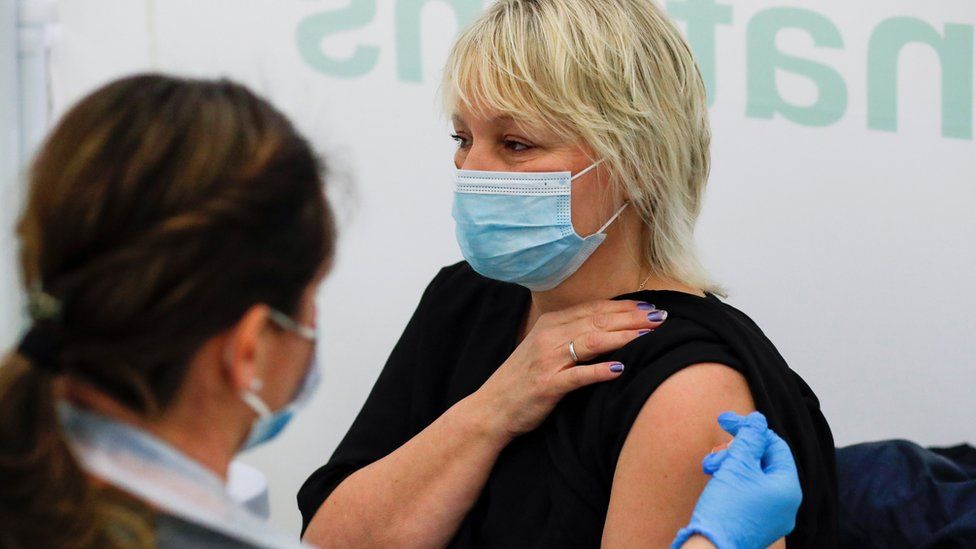Coronavirus: UK reports largest number of second jabs in one day
- Published

The UK has reported the largest number of second coronavirus vaccine doses given in a single day, according to the latest government data.
A total of 450,136 second doses were received on Friday - with 106,878 first doses also administered.
The previous record was set on Thursday when 449,269 second doses were reported - in addition to 96,242 first doses.
There were 2,589 new infections in the past 24 hours, and another 40 deaths within 28 days of a positive test.
The latest figures show that of the 39,001,554 vaccinations administered in the UK so far, 32,010,244 were first doses - a rise of 106,878 on Friday.
Meanwhile, 6,991,310 were second doses, a rise of 450,136.
After the latest figures, the UK's death toll stands at 127,080 and the total number of infections is 4,368,045.
It comes after scientists tracking the epidemic say there is increasingly strong evidence to show that the UK's vaccination programme is breaking the link between coronavirus cases and deaths.
A study, commissioned by the government and run by Imperial College London, found that infections had fallen by roughly two-thirds since February, before beginning to level off.
This is probably due to people beginning to mix more - but deaths have not followed the same pattern.
However this was not the case before January, when the vaccine rollout began.
Meanwhile, Office for National Statistics (ONS) data suggests that coronavirus cases in the UK are down to less than a sixth of the January peak.
Infections were "likely level" in England and Northern Ireland in the week up to 3 April, but decreasing in Scotland and Wales, the ONS said.
On Wednesday, it was announced that people under the age of 30 in the UK will be offered an alternative Covid vaccine to the Oxford-AstraZeneca jab due to evidence linking it to rare blood clots.
The recommendation followed a review by the UK's medicines watchdog the Medicines and Healthcare products Regulatory Agency (MHRA) found that by the end of March 79 people had suffered rare blood clots after vaccination - 19 of whom had died.
Related Topics
- Published10 April 2021
- Published9 April 2021
- Published9 April 2021